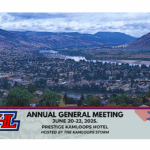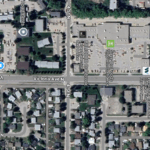Home »

Cannabis regulation committee underway
A joint provincial-local government committee that will consider policies related to cannabis legalization and regulation in British Columbia is set to begin meeting later this week and a local politician is front and centre.
Minister of Public Safety and Solicitor General Mike Farnworth announced the creation of the Joint Provincial-Local Government Committee on Cannabis Regulation (JCCR) at the Union of B.C. Municipalities (UBCM) convention in September.
The purpose of the committee is to provide a forum for communication and consultation so that the province considers local government input during the development of the regulatory framework for legalized non-medical cannabis.

“It goes without saying that local government will be on the frontline and instrumental in the delivery of new policies and laws associated with the legalization of non-medical cannabis in British Columbia,” Farnworth said. “We welcome and value the Union of B.C. Municipalities’ input as we build a framework for the province focused on protecting young people, health and safety, keeping the criminal element out of cannabis and keeping our roads safe.”
UBCM has appointed 12 representatives to the JCCR drawn from elected officials, staff specializing in planning, building inspection, bylaw enforcement or public safety, and senior staff. Provincial representatives are provided through the Ministry of Public Safety and Solicitor General. The first meeting of the JCCR will take place on Friday, Oct. 20.
“Local governments welcome the opportunity to work with the Province as it develops a framework for cannabis legalization in B.C.,” said UBCM President Wendy Booth, who is Regional District of East Kootenay (RDEK) Electoral Area F Director and vice-chair of the RDEK board. “There are a lot of details to be considered in a short period of time. We want to ensure that the resulting policies are practical and workable for communities in British Columbia, and leave room for local decision-making,” she said.
e-KNOW







